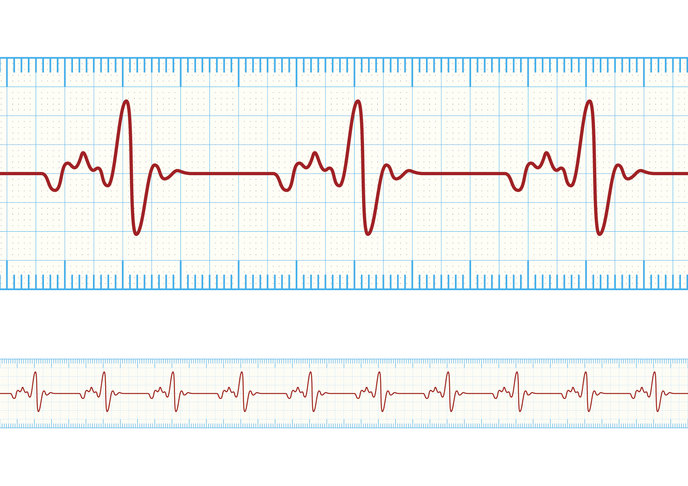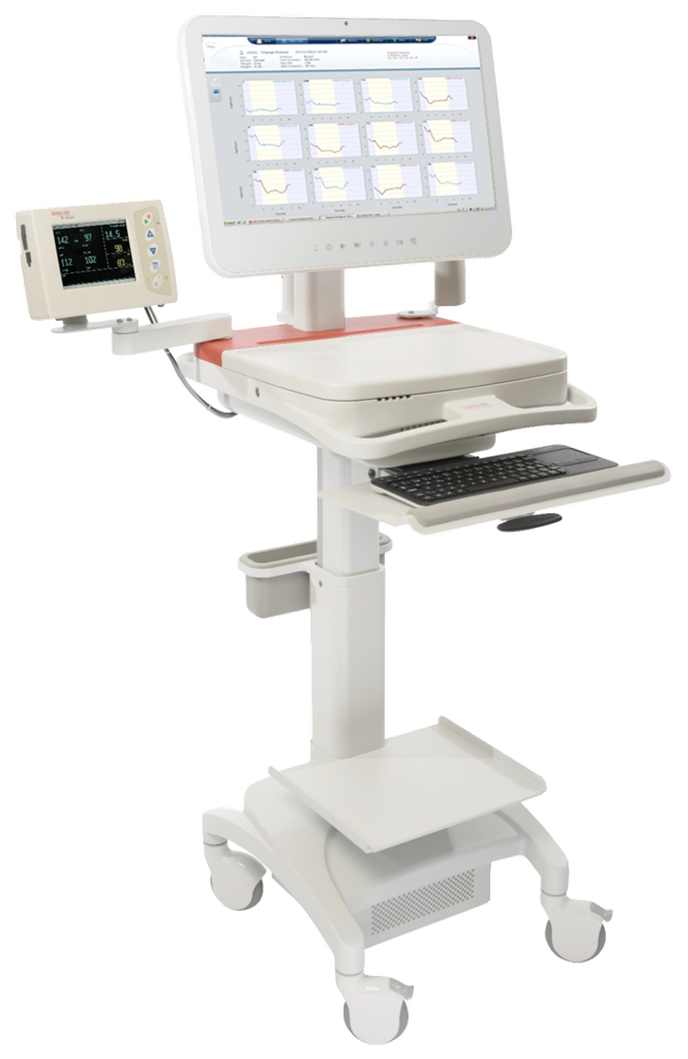Chest pain sends more than five million Americans to a hospital emergency room each year. Healthcare workers use imaging techniques and electrocardiograms (ECGs) – which translate the heart’s electrical activity into line tracings on paper — to help determine quickly if the pain indicates heart trouble.
The problem, however, is that standard ECG only graphs the low-frequency band, which doesn’t give the full picture.
Now there’s an advanced and low-cost tool available for more accurate ECG results in patients at rest. Israel’s BSP has received US Food and Drug Administration (FDA) approval to market and sell its HyperQ Rest System to aid in the diagnosis of patients with chest pain in the emergency room.
BSP chief executive officer Tamir Ben-David tells ISRAEL21c that the company’s intellectual property is based on research showing that the heart’s electrical signals in high frequency are useful in diagnosing heart ischemia (inadequate blood supply to the heart) and can identify up to 80 percent more patients with ischemia when used with a traditional stress ECG.
“BSP wanted to evaluate how the high-frequency component, a biological signal, has a different frequency domain,” says Ben-David, a physicist with business experience in implantable medical device platforms.
Successful clinical trials
Biomedical signal analyst Amir Beker founded BSP (Biological Signal Processing) in 2000, recognizing the potential of high-frequency electrical signals as a noninvasive, exceptionally accurate and inexpensive tool in diagnosing coronary artery disease.
Beker is a veteran of the Israeli military’s elite Talpiot physics and mathematics training program that has been a springboard for many Israeli innovators such as Marius Nacht, cofounder of Check Point Software Technologies.
He began with an algorithm to develop a device plus interpretation software for stress ECG evaluation, which went on the market in 2010.
“A year later, we started developing the platform for high-frequency evaluation for resting ECG because nothing like it was on the market,” explains Ben-David.
Successful clinical trials preceded FDA and CE approval for both HyperQ models, which are so far free of competition.
More accurate diagnosis in women
BSP’s first product, HyperQ Stress, is widely used by doctors in the United States, Europe, Southeast Asia and Israel for measuring the high-frequency signals during a stress ECG – an approach recently endorsed for its effectiveness by the American Heart Association.
Aside from being able to identify more people with ischemia than the traditional ECG, HyperQ stress has been found to perform equally well in men and women, thus allowing for dramatically improved diagnosis in women, in whom stress test accuracy is notoriously poor.
This is significant. “The enhanced accuracy that the HyperQ technology brings to stress ECG testing may cut back the performance of unnecessary invasive procedures, and reduce radiation exposure, particularly in women,” according to Dr. David Rosenman, head of the Non-Invasive Cardiology Unit at Jerusalem’s Shaare Zedek Medical Center.
In the emergency room, however, a stress test isn’t practical. So BSP designed a related device and integrated software to use in conjunction with a resting ECG.
Next up: in your smartphone
In 2012, BSP signed a collaboration agreement with Schiller AG, the leading ECG manufacturer in Europe and one of the top five globally. Schiller customers interested in adding HyperQ’s analytic capabilities may buy a software interpretation license from the Israeli company.
“With Schiller, we developed integration software that we launched in 2013 and reached the market at the beginning of 2014,” says Ben-David. BSP reported record revenues of $1.3 million in the first half of 2014.
“We put a lot of effort into educating the Schiller sales force, our arms and legs in the industry,” says Ben-David. “Entering the market requires education, which is not simple.”
As the healthcare industry becomes accustomed to using HyperQ systems, BSP is evaluating the possibility of using its patent-protected technologies in implantable devices, products for home care, and ECG analysis systems built into smartphones and wearables.
“We believe our technology can make a significant change in this market because currently there is no means to detect ischemia through existing technology,” Ben-David says. “We believe we can bring a significant impact in these markets, too.”
BSP is currently seeking funding or collaboration for these future projects.
For more information, click here.
















